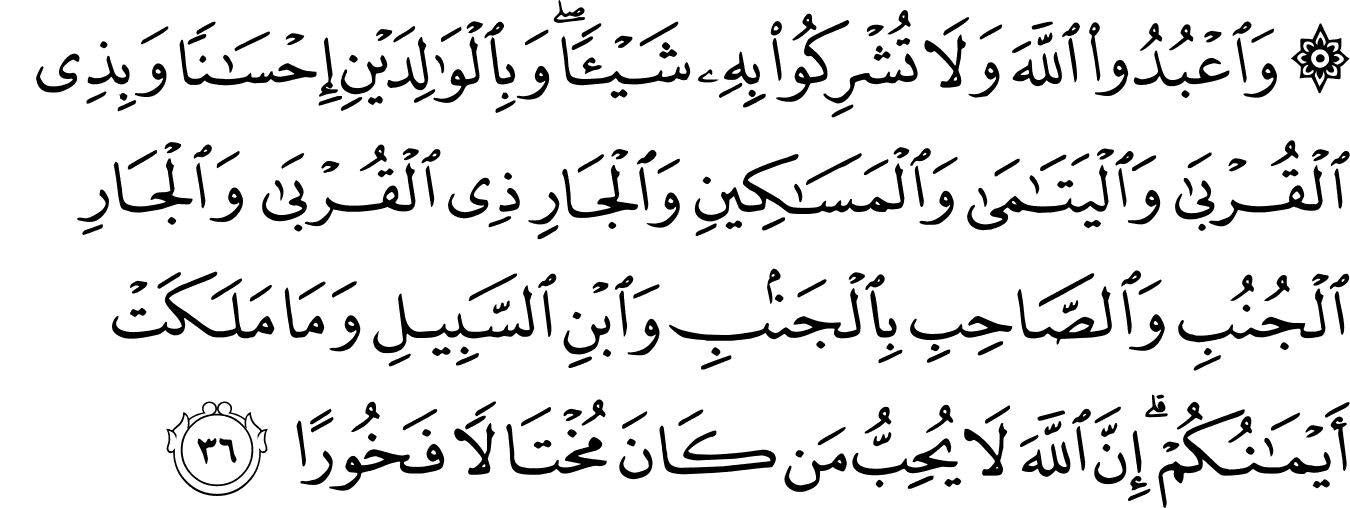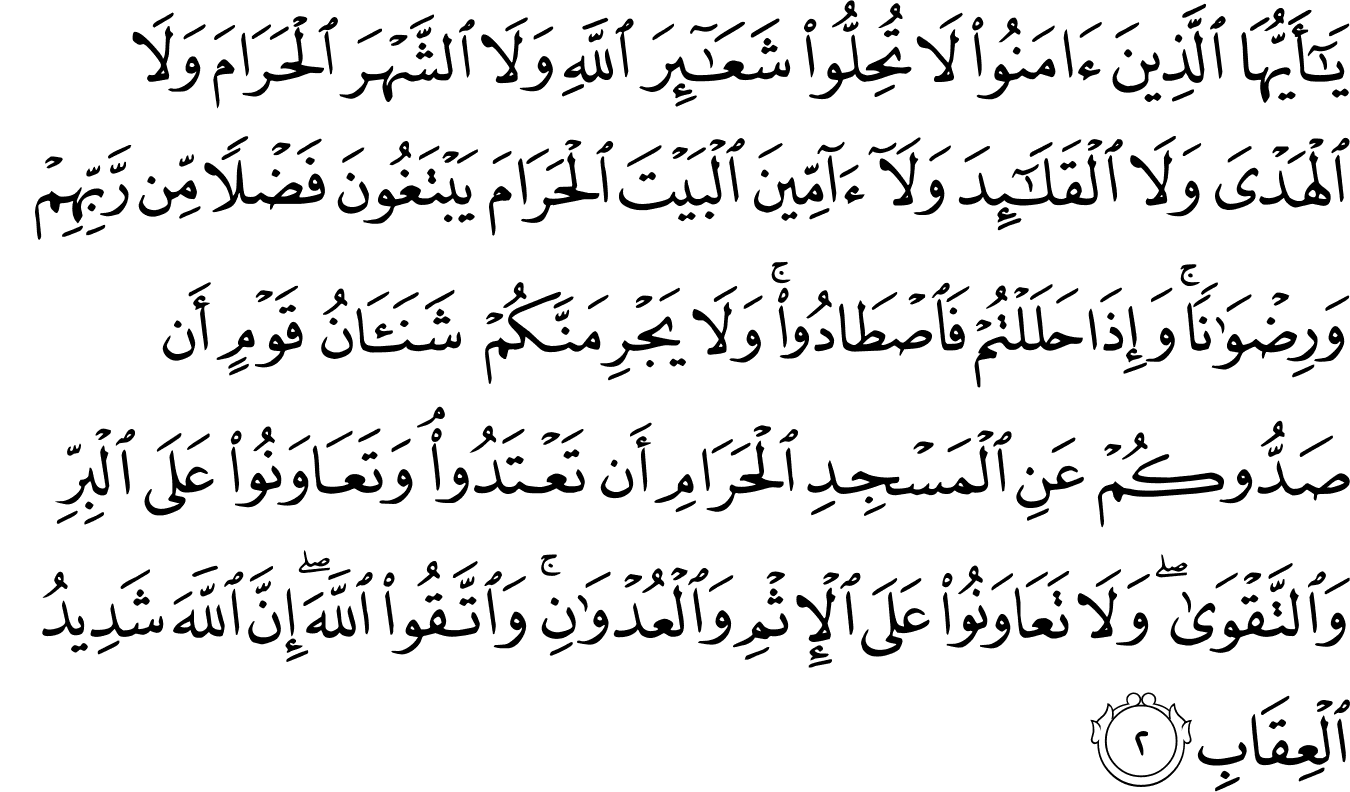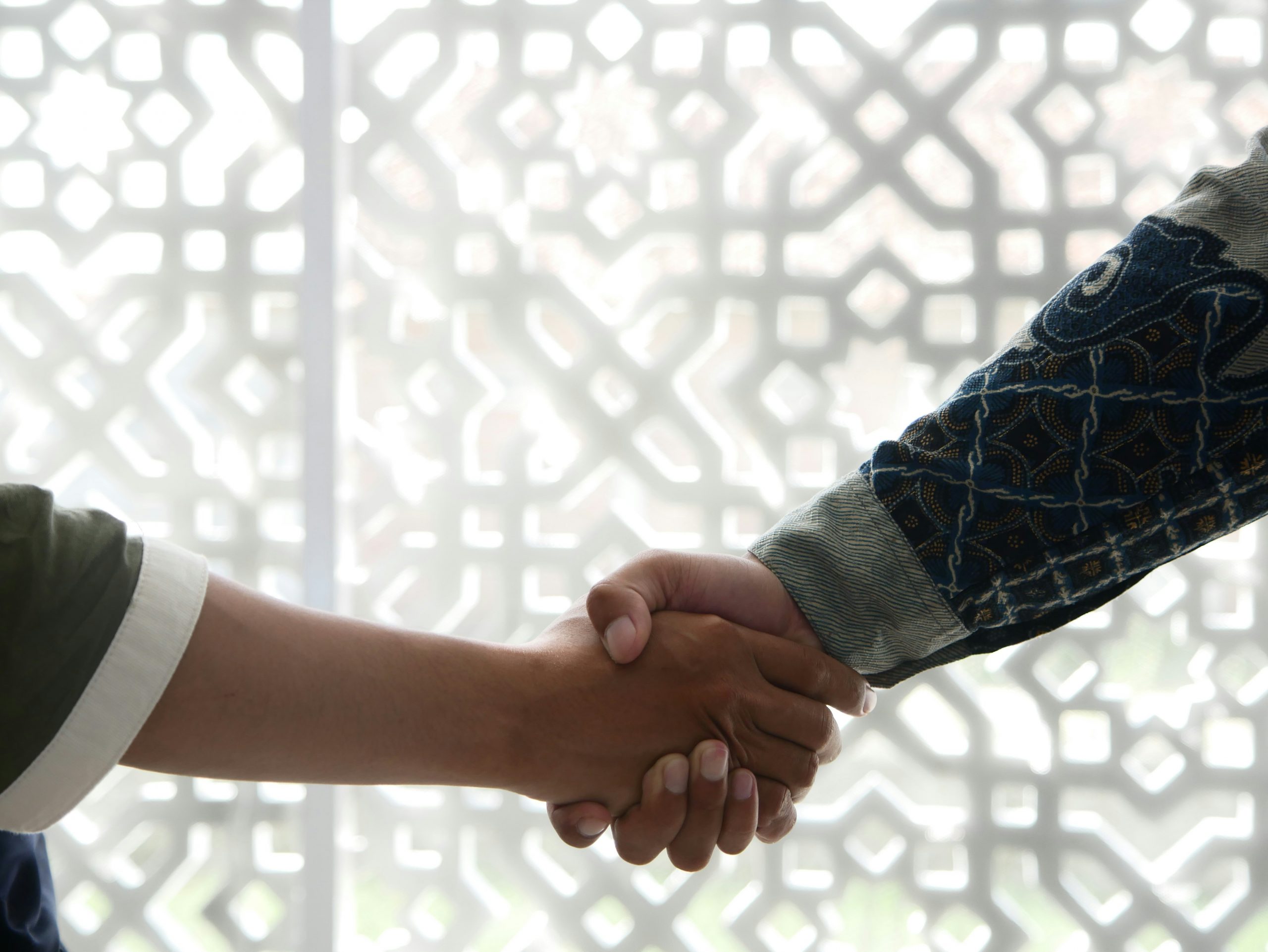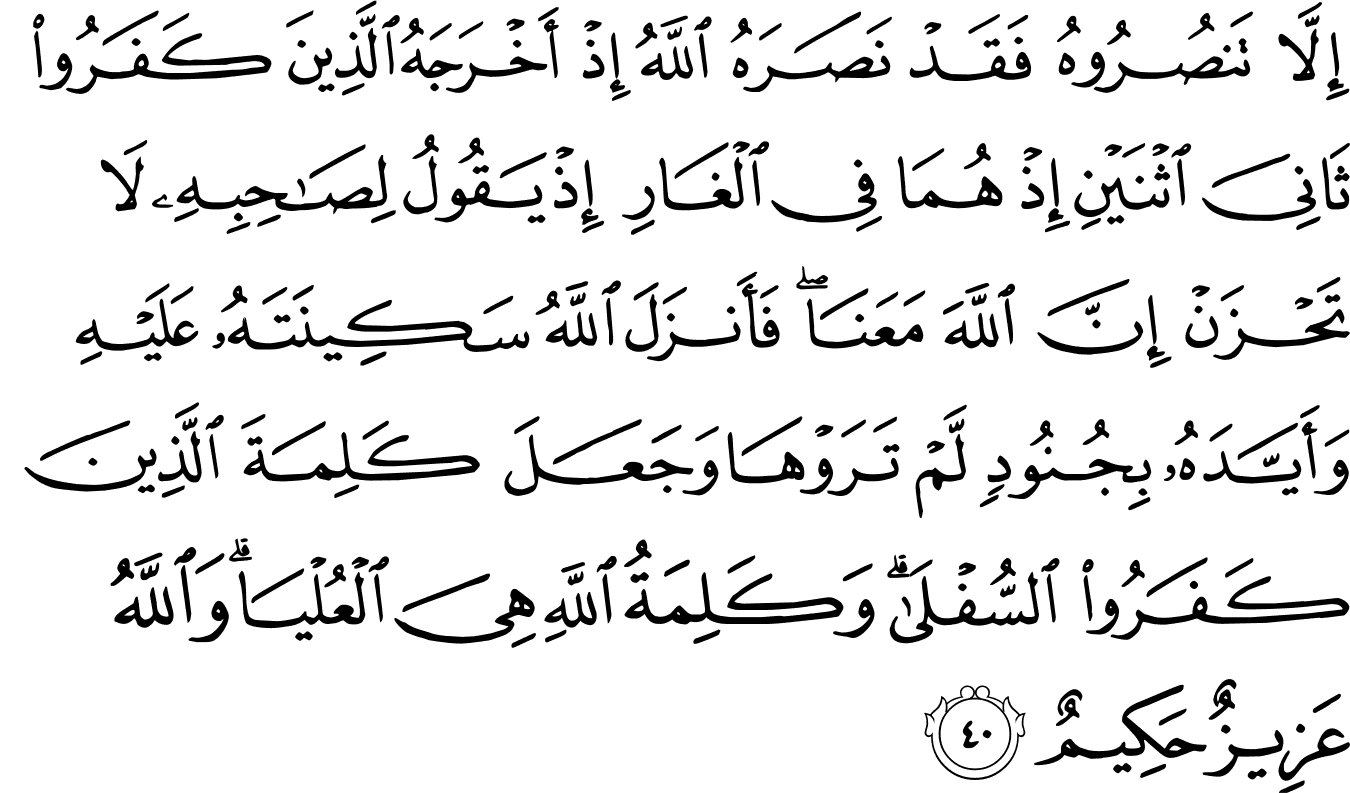Islam, since its inception, has been calling the masses towards one God, Allah  , and it is certain that we all will be returning to Him; as Allah
, and it is certain that we all will be returning to Him; as Allah  says in the holy Qur’an:
says in the holy Qur’an:
“Who, when disaster strikes them, say, “Indeed we belong to Allah, and indeed to Him we will return.” [Surah Al-Baqarah: 2;156]
Remarkably, Allah  has increased our stature and greatness to the extent that even the angels who always recite His Names, never do a sin, and follow every single commandment of Allah
has increased our stature and greatness to the extent that even the angels who always recite His Names, never do a sin, and follow every single commandment of Allah  with utmost caution are judged behind us (but with a proviso that whatever good we do or every single action undertaken by us are with pure intention and only for the contentment of Allah
with utmost caution are judged behind us (but with a proviso that whatever good we do or every single action undertaken by us are with pure intention and only for the contentment of Allah  ).
).
One would be surprised to know this but this is the truth and the reason is very simple: the actions performed by a human being with the absolute objective of seeking Allah’s  Pleasure hold greater acceptance than that of the angels because the former’s activities are borne from pure love and gladness for Allah
Pleasure hold greater acceptance than that of the angels because the former’s activities are borne from pure love and gladness for Allah  , although there are abundant hindrances from doing such noble deeds. He may have experienced a battery of whims for getting his actions completed, but he chose to go against his odd wishes and completed those actions hoping for Allah’s
, although there are abundant hindrances from doing such noble deeds. He may have experienced a battery of whims for getting his actions completed, but he chose to go against his odd wishes and completed those actions hoping for Allah’s  Pleasures, and that has enabled his deeds to have the upper hand against that of the angels.
Pleasures, and that has enabled his deeds to have the upper hand against that of the angels.
So, at this juncture, one should understand that pure intentions coupled with the willingness for Allah’s  Pleasure have greater meaning to Allah
Pleasure have greater meaning to Allah  because He loves His slaves who literally love Him, and He looks at the pure hearts bereft of jealousy, animosity, and all evil intentions and doesn’t look at one’s beauty or physique. As our Prophet Muhammed
because He loves His slaves who literally love Him, and He looks at the pure hearts bereft of jealousy, animosity, and all evil intentions and doesn’t look at one’s beauty or physique. As our Prophet Muhammed  said in a hadith narrated by Abu Huraira
said in a hadith narrated by Abu Huraira  :
:
“Allah does not look at your figures, nor at your attire, but He looks at your hearts and accomplishments.” [Muslim]
Here is a set of alternatives that will definitely make you think deeply and curb your vanity:
Perpetual Goodness

Kindness dispels vanity [PC: Adam Nemeroff (unsplash)]
It is a celebrated truth that good deeds prove to be better than weapons as they send a positive message to the masses. As Aesop, a great fabulist and storyteller rightly said “No act of kindness, no matter how small, is ever wasted.”
There are many verses which oblige Muslims to be good and do good towards people. One such verse is that of Surah Al-Nisa:
“Worship Allah and associate nothing with Him, and to parents do good, and to relatives, orphans, the needy, the near neighbor, the neighbor farther away, the companion at your side, the traveler, and those whom your right hands possess. Indeed, Allah does not like those who are self-deluding and boastful.” [Surah An-Nisa: 4;36]
This verse clearly obliges Muslims to fairly treat their parents, relatives, orphans, and the grassroots of society. Another verse is that from Surah al-Ma’idah:
“O you who have believed, do not violate the rites of Allah or [the sanctity of] the sacred month or [neglect the marking of] the sacrificial animals and garlanding [them] or [violate the safety of] those coming to the Sacred House seeking bounty from their Lord and [His] approval. But when you come out of ihram, then [you may] hunt. And do not let the hatred of a people for having obstructed you from al-Masjid al-Haram lead you to transgress. And cooperate in righteousness and piety, but do not cooperate in sin and aggression. And fear Allah; indeed, Allah is severe in penalty.” [Surah al-Ma’idah: 2;5]
This verse actuates Muslims to be partners in righteousness and piety and prohibits them from being partners in sin and aggression. Doing good doesn’t make you weak or fragile; instead, it gives our hearts an extreme level of gratification. We can help people as per their needs, sometimes, spending time with others, motivating others, financially bankrolling others and other acts of fairness give you more space in your heart, and that question of vanity gets diminished.
Respect and Fair Treatment
As per the Islamic teachings, respect towards another is one of the most blessed elements that can be very beneficial for one to live with. Prophet Muhammed ﷺ said:
“It is enough evil for a Muslim to look down upon his (Muslim) brother.” [Muslim]
All things of a Muslim are inviolable for his brother in faith: his blood, his wealth, and his honor. This Prophetic narration sheds light on the importance of showing respect to your brother. It’s not specifically for Muslims, but Islam actuates its disciples to give respect and fair treatment to non-Muslims as well. Even Prophet Muhammed ﷺ advised his Companions to take a soft stand instead of being rude to others no matter which religion the person belonged to. There is another Prophetic account that clearly emphasizes maintaining a good relationship with everyone:
“Let him who believes in Allah and the Last Day speak good, or keep silent; and let him who believes in Allah and the Last Day be generous to his neighbor; and let him who believes in Allah and the Last Day be generous to his guest.” [Al Bukhari and Muslim]
This is a frequently used and often repeated phrase to motivate plurality and equality in a society. It means that you should respect and fairly treat your neighbors even if they don’t belong to your team. The Prophet Muhammed ﷺ used to treat the apostates or the non-believers with the utmost respect as well and never expressed hatred towards them nor adjudged his followers to do the same. Here, I would like to present a very interesting story (as narrated by Usama bin Zaid bin Haritha  which reflects our Prophet’s
which reflects our Prophet’s  greatness, sagacity, kindness, love and respect towards the non-believers:
greatness, sagacity, kindness, love and respect towards the non-believers:
Allah’s Messenger (ﷺ) sent us (to fight) against Al-Huraqa (one of the sub-tribes) of Juhaina. We reached those people in the morning and defeated them. A man from the Ansar and I chased one of their men and when we attacked him, he said, “None has the right to be worshipped but Allah.” The Ansari refrained from killing him but I stabbed him with my spear till I killed him. When we reached (Medina), this news reached the Prophet. He said to me, “O Usama! You killed him after he had said, ‘None has the right to be worshipped but Allah?”‘ I said, “O Allah’s Messenger (ﷺ)! He said so in order to save himself.” The Prophet (ﷺ) said, “You killed him after he had said, ‘None has the right to be worshipped but Allah.” The Prophet (ﷺ) kept on repeating that statement till I wished I had not been a Muslim before that day. [Al-Bukhari]
This incident shows how Prophet Muhammed ﷺ respected and treated non-believers, and how utterly displeased the Prophet Muhammed ﷺ was with the behavior of Usama  at the time.
at the time.
Rapport-Building
Another major factor that is supposed to be an integral part of curbing the very notion of vanity, is rapport-building. Rapport-building is an easy task that can be done in the simplest of ways. It refers to maintaining a close relationship or understanding with others by showing trust, sincerity, respect, and honor. Empathy, mutual understanding, respect, listening to others, patience, etc. are the factors that ensure the establishment of rapport-building.
Mutual-Understanding
One should always have to deal in a fair way that enthuses people. Forgiving and neglecting taunts are primary factors that could lead to better understanding and a positive mindset in others’ eyes.

Mutual understanding [PC: Masjid MABA (unsplash)]
Thus, from these meanings and dimensions, we get that the biggest enemy of a human being is his arrogance and vanity, and hence Islam has adopted a very strong attitude towards it. One should be humble and kind towards others. There are a plethora of Qur’anic verses and Prophetic accounts which condemn this attitude and socially it is very harmful to a stable society. Allah says in the Qur’an:
 “And do not turn your cheek [in contempt] toward people and do not walk through the earth exultantly. Indeed, Allah does not like everyone self-deluded and boastful.”
“And do not turn your cheek [in contempt] toward people and do not walk through the earth exultantly. Indeed, Allah does not like everyone self-deluded and boastful.” [Surah Luqman: 31;18]
This verse sends the very message of being flexible and choosing a middle path. A Muslim should have to be God-fearing and always live with simplicity. Vanity just makes one feel the greatest, and that greatness cannot help him remain good as there will be clashes and conflicts.
Positive Mindset backed by Reliance on Allah 
It is believed that positive thinking coupled with affirmative thoughts is necessary to move in life. The Qur’an is the biggest source of motivation as Allah says in Surah Az-Zumar:
“O My servants who have transgressed against their souls: do not despair of Allah’s mercy, for Allah forgives all sins. He is the Forgiving, the Merciful.” [Surah Az-Zumar: 39;53]
, which implies that no matter how precarious a situation and the challenging times you are going through, you just need to have a positive attitude, buoyed by the knowledge of Allah’s  Mercy, as it will greatly help you stay focused and highly concentrated on your mission. It also reduces your chances of becoming arrogant as it stops you from always justifying and glorifying yourself. Moreover, it will also help you in growing and reaching out to other people once you start to think and care for others.
Mercy, as it will greatly help you stay focused and highly concentrated on your mission. It also reduces your chances of becoming arrogant as it stops you from always justifying and glorifying yourself. Moreover, it will also help you in growing and reaching out to other people once you start to think and care for others.
In another verse from surah Al-Tawbah Allah  says:
says:
“If you do not aid the Prophet – Allah has already aided him when those who disbelieved had driven him out [of Makkah] as one of two, when they were in the cave and he said to his companion, “Do not grieve; indeed Allah is with us.” And Allah sent down his tranquillity upon him and supported him with angels you did not see and made the word of those who disbelieved the lowest, while the word of Allah – that is the highest. And Allah is Exalted in Might and Wise.” [Surah At-Tawbah: 9;40]
There is another verse from surah Yusuf, verse 90, where Allah  says:
says:
“They said, “Are you indeed Joseph?” He said “I am Joseph, and this is my brother. Allah has certainly favored us. Indeed, he who fears Allah and is patient, then indeed, Allah does not allow to be lost the reward of those who do good.” [Surah Yusuf: 12:90]
May Allah  rid us of any arrogance we may have acquired, keep us humble always, and keep us striving in His Way.
rid us of any arrogance we may have acquired, keep us humble always, and keep us striving in His Way.
Related:
– It’s Ego-Busting Time!
– The Fluctuating Heart: Identifying And Managing Dips In Imaan
The post Deconstructing Vanity Within The Framework Of Islam appeared first on MuslimMatters.org.

 , and it is certain that we all will be returning to Him; as Allah
, and it is certain that we all will be returning to Him; as Allah 
 said in a hadith narrated by Abu Huraira
said in a hadith narrated by Abu Huraira  :
: 



 “And do not turn your cheek [in contempt] toward people and do not walk through the earth exultantly. Indeed, Allah does not like everyone self-deluded and boastful.” [Surah Luqman: 31;18]
“And do not turn your cheek [in contempt] toward people and do not walk through the earth exultantly. Indeed, Allah does not like everyone self-deluded and boastful.” [Surah Luqman: 31;18]



